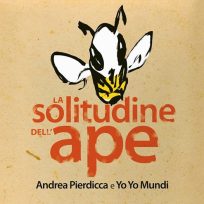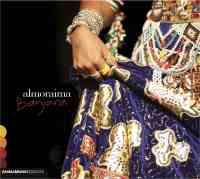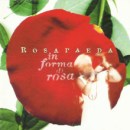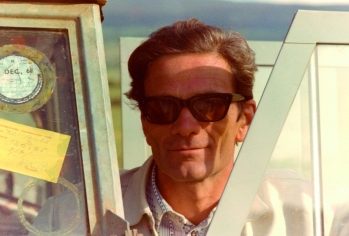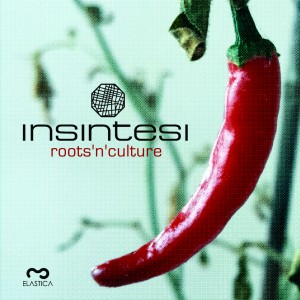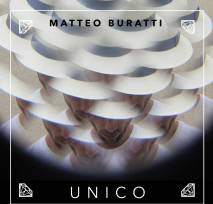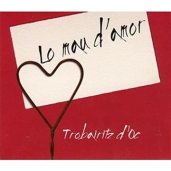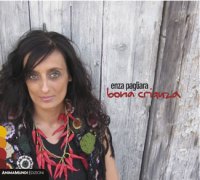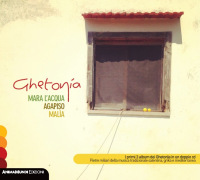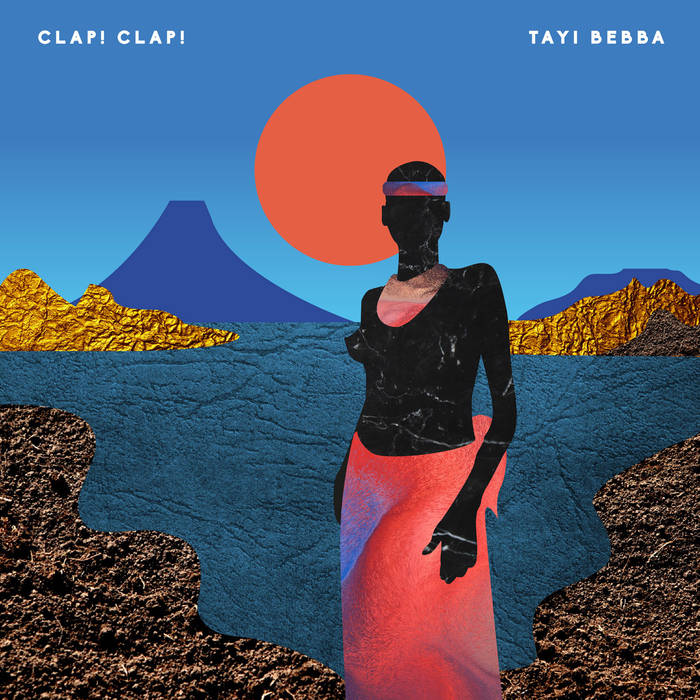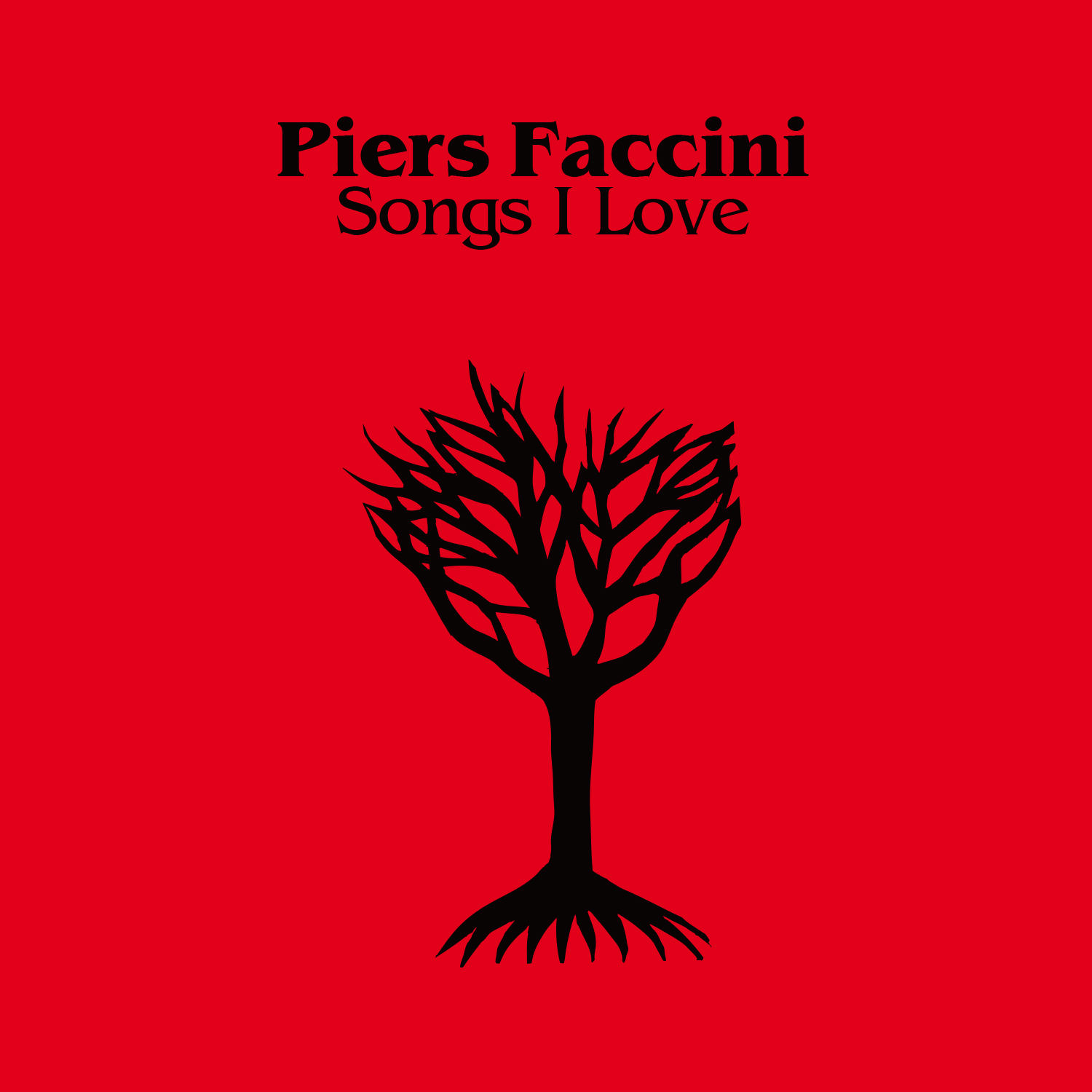La Danza Poetica #26 Il Canto Popolare
Following on from the 1st, and the 15th edition of the podcast, we return to Italy’s songs and stories. From north to south, from folk to modern electronic dance. All rooted in the varied storytelling and dance traditions of the peninsula.
There is so much that's exciting in the current takes on folk traditions in Italy. It is a diverse tradition, the country being as it is a collection of smaller, diverse countries and cultures. Traditions emerging in dub, electronic, house beats, intriguing mixes of traditional Meditteranean dance with reggae and bass - the tarantella and its intimate pizzica, in particular. In this podcast, a focus on the pizzica, with modern takes on the brilliant Mascarimirí (remixed by DJ Click) and Salento's Insintesi dub (remixed by Dr Das). Also, the trobairitz - the female troubadours of the Occitan tradition, voiced clearly by many Italian female artists. A focus as well on the south, with Salento-based label Anima Mundi releasing Admir Shkurtaj, Enza Pagliara, Almoraima, and the amazing Ghetonía. Plus, the modern storytellers of hip hop in the north, Zero Plastica and a new album from Matteo Buratti, as well as a new take on 70s folk from Piers Faccini .... As you can see, there is no way I could avoid spilling across the hour this time!
We have much work to do, my fellow dancers! This is Il Canto Popolare, the title taken from the poem by Piere Paolo Pasolini, our honoured ghost for this dance. Andiamo!
Tracklist
Mascarimirì – Tam!
Yo Yo Mundi & Andrea Pierdicca – La solitudine dell’Ape (feat. Alessio Lega)
Yo Yo Mundi & Andrea Pierdicca – Una pillola qui, una pillola là (Live)
Almoraima – A Mi Madre (Fandangos)
Rosapaeda – Mamma nan ge steie (feat. Eddi Romano)
Pier Paolo Pasolini – Supplica A Mia Madre
Faraualla – Spina Spinella
Faraualla – Rikitikitavi
Insintesi – Pizzica di Aradeo (Insintesi ft Alessia Tondo) Dr Das Mix
Yo Yo Mundi & Andrea Pierdicca – Miele una volta (Live)
Trobairitz d’Oc – Colorina De Ròsa
Enza Pagliara – Pizzica macaria
Mascarimirì – Pizzica alla spennato
Ckrono & Sle$h – Dojoji Smoothies (The Clerk Remix)
Mascarimirì – Tarantella di sannicandro (DJ Click Remix)
Pier Paolo Pasolini – Il Canto Popolare
Stefano Miele feat. Ghetonìa – To Proto ([Dunkelbunt] Remix)
Pier Paolo Pasolini – La terra di Lavoro
Zero Plastica – Ladro! (Assolo Di Nio)
Matteo Buratti – Last Trip ft. Fasto e Kiqué
Matteo Buratti – Da togliere il fiato
Admir Shkurtaj – Aremu
Yo Yo Mundi & Andrea Pierdicca – Meno Api negli alveari (Live)
Ghetonía – Oriamu Pisulina
Mariangela Gualtieri – Sii dolce con me
Clap Clap – The Holy Cave
Elettreratura – A Capo
Mascarimirì – Tam!
Enza Pagliara – Kali nifta
Piers Faccini & Vincent Segal – Cammina Cammina
Notes on the show
First, Pasolini. I've always held a fascination for this poet of many mediums, a poet who foresaw much of the globalised consumerist nightmare that arguably we are living now. A recent biopic by Abel Ferrara attempts to reconstruct the circumstances of his contentious murder in 1975..
Willem Dafoe as Pasolini ... I'm not sure, can he express that strange softness? ... but, I am very keen to see this film. It is in fact, the 39th anniversary of Pasolini's death, on 1st November. (I didn't know that when making the show - it's the kind of unconscious serendipity I've come to expect each month with this poetic exercise.) I'm interested to see how far Ferrara will go in making the political connections to the murder. How brave he might be in telling the story. So ... Supplica A Mia Madre, La terra di Lavoro, and Il Canto Popolare. The folk song - but not in a rosy-glassed, wheat-and-harvest kind of way - the folk song as the visceral, essential, hard, vital life of the people, as Pasolini saw it.
The trobairitz - originally the female composers and storytellers from the 12th and 13th centuries - are not talked about enough when we go back to European storytelling traditions. Trobairitz d’Oc from Turin, is a duo exploring the Occitan Italian and French trobairitz repertoire of the north (the Occitan valleys). Paola Lombardo comes from a folk background, Valeria Benigni from jazz. Together their voices are completely beguiling. From the south east, in Puglia (Apulia)Faraualla are another female vocal group - quartet - exploring vocal polyphony also but from a very different tradition. Faraualla cover a lot of ground not only the Southern Italian tradition but also the gypsy, traditions of Corsica, Bulgaria and Tahiti, the Moravians, and Ars Nova (the Trecento period of the late middle ages) and modern pop, jazz, folk. The 2013 album Ogni Male Fore "represents an ideal path through a fascinating territory of material culture: folk medicine...remedies are handed down from generation to generation through a mainly female line during special and mysterious nights, such as Christmas Eve or Saint John’s night. In each track of the cd formulas revive in the singing and in the sound of Faraualla, in an ideal path to physical and spiritual recovery." Also from Puglia, Rosapaeda bringing folk into dance music, collaborating with Eddi Romano from her '01 In forma di rosa album. There is new work coming from Rosapaeda - the crowd funding campaign has successfully ended and there is an album due... soon? Stay tuned to this page - http://www.musicraiser.com/projects/2103-rosapaeda-inna-different-stylee
From the AnimaMundi label the popular voice of the south, Enza Pagliara, reviving the music and oral tradition of the Salento. The 2012 album Buona crianza revives traditional songs as well as reinterpreting tradition through new composition. Pizzicas and ballads, waltzes and folk songs. Enza is among the most famous of performers in the tradition of Salento, previously singing with Orchestra Notte della Taranta. AnimaMundi is a label and publisher from Salento, dedicated to the publication and promotion of music, literature and culture of Puglia. Begun in 2000 by Giuseppe Conoci, AnimaMundi "started from a state of confusion and alienation in relation to ourselves and the world and an irrepressible need to be more tuned in to the heart, the soul, the spirit." The label is maybe best described as a meeting point for many different expressions of Mediterranean culture - music, storytelling, theatre, art, dance. Dedicated to 'fair trade' for artists they produce albums, videos and books, and live performances. I came across them first via their releases of the magical band Ghetonía (see the 15th podcast for more about the Griko tradition in southern Italy).
Ghetonía is a cultural group based in Calimera, Grecìa Salentina in southern Italy, which exists to preserve the music, poetry, language and folklore of the Griko-speaking people of Salento by documenting the various aspects of the Grecìa Salentina traditional life, history, language and folklore. The music arm of the group is made up of Roberto Licci, Emilia Ottaviano, Salvatore Cotardo, Emmanuelle Licci, Angelo Urso and Franco Nuzzo. AnimaMundi are now re-releasing their first three recordings - almost entirely out of print - as a box set. Mara l'acqua ('93), Agapiso ('94) and Malía ('95) are included, along with a 20 page booklet tracing the history of the project and music through interviews with Roberto Licci and Salvatore Cotardo. A rich collection of an important musical movement, a good time to rediscover this history!
Also on the label and featured in the show, Almoraima is a multi-ethnic group from Salento blending Eastern Arabic and Andalusian gypsy flamenco, tango, rumba and jazz. The band is made up of members from Salento, Andalusia, Camargue, the Balkans, Pakistan and India. They represent the vibrancy of the Salento region's musical scene, not only in the revival of the pizzica.
The pizzica tarantata was originally played as a spiritual healing amongst peasants in the southern heel of Italy. Music and dance as ritual healing against maladies caused (as we know?) by the bite of a tarantula (pizzicare means to bite or sting) but mainly due to any number of things, both physical and emotional, and in any case, to dance is to heal, and to dance wildy, is to release! After a time of being 'stigmatised' in the nineteenth and twentieth centuries, revival in Salento is vibrant and innovative and the revival in fact stretches across the whole country. Which brings me round to the Dr Das remix of Insintesi's track Pizzaca Di Aradeo. Featuring the intensely beautiful voice of Alessia Tondo. The original track was released on Insintesi's album Salento in Dub (2010). Insintesi is a duo - Francesco Andriani de Vito and Alessandro Lorusso - mixing up urban dub with melodies from Salento and Mediterranean traditional music. Lately they are concentrating on female vocalists, in particular those drawing on past and more obscure traditions. They've collaborated with Enza Pagliara, as well as the Massilia Sound System, and others.
Mascarimirì. What can I say, really. Just go and get this album! Around for ten years, Mascarimirí define, redefine, and recreate the tradition of Salento in their "tradinnovazione' - an enlightened approach to reinterpreting traditional music and stories, and language, incorporating modern electronics, dub, and furious energy. This video (see if I can get this translation somewhere near right) is a response to, the band says, some forms of the development of the wrong language for the music they play - it is not taranta but it is in fact, pizzica pizzica, it is not a tambourine but it is in fact, a Tamburreddhru. The album Tam! addresses this in what they feel is a lose of traditional knowledge and continuity surrounding the music, and also extends their influences into Calabria, Greece and Albania, Balkan sounds and surrounding influences. Singing in part in Griko, the language of the south east of Italy, connecting the influences of Salento to its own roots.
I really defy you to stay still to this... From Tam! this enchanting video directed by Salento filmmaker Giuseppe Pezzulla for the track Per Te... Pizzica Pizzica is the party we all really want to be at.
Also on this album (and featured in this show) Mascarimí are remixed by the endlessly innovative DJ Click - one of my favourite tracks of the year.
Staying north, and bringing me to the catalyst for revisiting Italia this month, a full concept spoken word album from Bologna's Matteo Buratti. Out late last month, Unico is the story of a relationship - a love story, in chapters. It completes a beginning in recent works like the video Per Quello Che Ho/Possoexploring dichotomies, black/white and grey areas in hearts colliding, combining, splintering, separating. As a whole, the album is a satisfying mixture of jazz, soul, hip hop and slow bass. Tracks like Dove andiamo are pared back to the simplicity of that space where hip hop has always inhabited soul music (or r'n'b if you like). The piano that I love from early tracks like Addio al terminal is back and welcome (pianos in rooms echoing off the dust - I'm a fan of that). Then there's some satisfying hip hop groove in tracks like Last Trip, featured in this show. Italian spoken word poetry albums are few and far between - if any? in my knowledge at least. May there be more like this!
Pausing at this juncture, for another Italian poet ... everything pauses for the shy, seductive poet and playwright Mariangela Gualtieri, recorded back in 2011. Sii dolce con me ..
Allora.
Let's end at the beginning...
Yo Yo Mundi was founded in the late '80s in Acqui Termi, in the hills of Monferrato, southern Piedmont. Telling stories and song through the tradition of Monferrato, they’ve released many albums over the years. Right through this show I feature some excerpts from the story of La solitude dell’ape (The Loneliness of the Bee) - a live storytelling and song project, acted by Andrea Pierdicca and Federico Canibus. It's a moral tale about the disappearance of the bees and the impact on our lives, through the use of agricultural chemicals. Chemist Justus Von Liebig, inventor and proponent of agricultural chemicals to increase yield, on his deathbed retracted and warned of the dangers, in particular the possibility that we might lose all of the bees and, then, everything else. But his last words were disregarded as the ravings of an old man. The whole stage play has been recorded and released on album. A mixture of story, dialogue, and folk song of the Monferrato region. A powerful moral tale about the destruction of monoculture and the importance of diversity - and that works for both our physical, and our emotional, lives.

